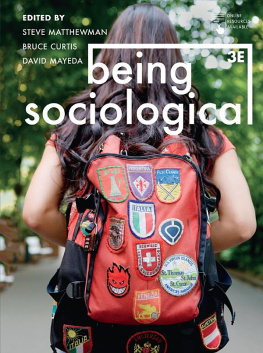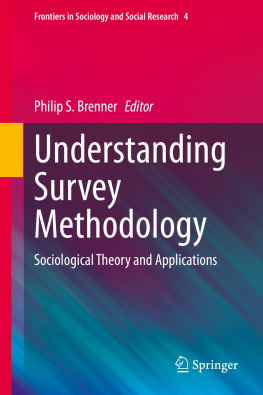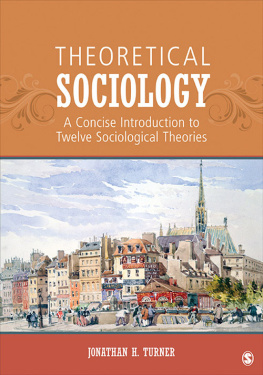THE SOCIOLOGICAL IMAGINATION
THE SOCIOLOGICAL IMAGINATION
C. WRIGHT MILLS
With a new Afterword by
TODD GITLIN


Oxford New York
Athens Auckland Bangkok Bogot Buenos Aires Calcutta
Cape Town Chennai Dares Salaam Delhi Florence
Hong Kong Istanbul Karachi Kuala Lumpur
Madrid Melbourne Mexico City Mumbai
Nairobi Paris So Paulo Singapore
Taipei Tokyo Toronto Warsaw
and associated companies in
Berlin Ibadan
Copyright 1959, 2000 by Oxford University Press, Inc.
First published by Oxford University Press, Inc., New York, 1959.
First issued as an Oxford University Press paperback, 1967.
Afterward copyright 2000 by Todd Gitlin
Published by Oxford University Press, Inc.
198 Madison Avenue, New York, New York 10016
Oxford is a registered trademark of Oxford University Press.
All rights reserved. No part of this publication may be reproduced, stored in a retrieval system, or transmitted, in any form or by any means, electronic, mechanical, photocopying, recording, or otherwise, without the prior permission of Oxford University Press.
Library of Congress Cataloging-in-Publication Data
Mills, C. Wright (Charles Wright), 1916-1962.
The Sociological Imagination / C. Wright Mills; with a new afterword by Todd Gitlin.
p. cm.
Originally published: 1959.
Includes index.
ISBN-13 978 0-19-513373-8
1. Social sciences. 2. Sociology. I. Title.
H61.M5 1999
301dc21 99-016199
20 19 18 17 16 15
Printed in the United States of America
For Harvey and Bette
Contents
1
The Promise
NOWADAYS men often feel that their private lives are a series of traps. They sense that within their everyday worlds, they cannot overcome their troubles, and in this feeling, they are often quite correct: What ordinary men are directly aware of and what they try to do are bounded by the private orbits in which they live; their visions and their powers are limited to the close-up scenes of job, family, neighborhood; in other milieux, they move vicariously and remain spectators. And the more aware they become, however vaguely, of ambitions and of threats which transcend their immediate locales, the more trapped they seem to feel.
Underlying this sense of being trapped are seemingly impersonal changes in the very structure of continent-wide societies. The facts of contemporary history are also facts about the success and the failure of individual men and women. When a society is industrialized, a peasant becomes a worker; a feudal lord is liquidated or becomes a businessman. When classes rise or fall, a man is employed or unemployed; when the rate of investment goes up or down, a man takes new heart or goes broke. When wars happen, an insurance salesman becomes a rocket launcher; a store clerk, a radar man; a wife lives alone; a child grows up without a father. Neither the life of an individual nor the history of a society can be understood without understanding both.
Yet men do not usually define the troubles they endure in terms of historical change and institutional contradiction. The well-being they enjoy, they do not usually impute to the big ups and downs of the societies in which they live. Seldom aware of the intricate connection between the patterns of their own lives and the course of world history, ordinary men do not usually know what this connection means for the kinds of men they are becoming and for the kinds of history-making in which they might take part. They do not possess the quality of mind essential to grasp the interplay of man and society, of biography and history, of self and world. They cannot cope with their personal troubles in such ways as to control the structural transformations that usually lie behind them.
Surely it is no wonder. In what period have so many men been so totally exposed at so fast a pace to such earthquakes of change? That Americans have not known such catastrophic changes as have the men and women of other societies is due to historical facts that are now quickly becoming merely history. The history that now affects every man is world history. Within this scene and this period, in the course of a single generation, one sixth of mankind is transformed from all that is feudal and backward into all that is modern, advanced, and fearful. Political colonies are freed; new and less visible forms of imperialism installed. Revolutions occur; men feel the intimate grip of new kinds of authority. Totalitarian societies rise, and are smashed to bitsor succeed fabulously. After two centuries of ascendancy, capitalism is shown up as only one way to make society into an industrial apparatus. After two centuries of hope, even formal democracy is restricted to a quite small portion of mankind. Everywhere in the underdeveloped world, ancient ways of life are broken up and vague expectations become urgent demands. Everywhere in the overdeveloped world, the means of authority and of violence become total in scope and bureaucratic in form. Humanity itself now lies before us, the super-nation at either pole concentrating its most co-ordinated and massive efforts upon the preparation of World War Three.
The very shaping of history now outpaces the ability of men to orient themselves in accordance with cherished values. And which values? Even when they do not panic, men often sense that older ways of feeling and thinking have collapsed and that newer beginnings are ambiguous to the point of moral stasis. Is it any wonder that ordinary men feel they cannot cope with the larger worlds with which they are so suddenly confronted? That they cannot understand the meaning of their epoch for their own lives? Thatin defense of selfhoodthey become morally insensible, trying to remain altogether private men? Is it any wonder that they come to be possessed by a sense of the trap?
It is not only information that they needin this Age of Fact, information often dominates their attention and overwhelms their capacities to assimilate it. It is not only the skills of reason that they needalthough their struggles to acquire these often exhaust their limited moral energy.
What they need, and what they feel they need, is a quality of mind that will help them to use information and to develop reason in order to achieve lucid summations of what is going on in the world and of what may be happening within themselves. It is this quality, I am going to contend, that journalists and scholars, artists and publics, scientists and editors are coming to expect of what may be called the sociological imagination.
The sociological imagination enables its possessor to understand the larger historical scene in terms of its meaning for the inner life and the external career of a variety of individuals. It enables him to take into account how individuals, in the welter of their daily experience, often become falsely conscious of their social positions. Within that welter, the framework of modern society is sought, and within that framework the psychologies of a variety of men and women are formulated. By such means the personal uneasiness of individuals is focused upon explicit troubles and the indifference of publics is transformed into involvement with public issues.
The first fruit of this imaginationand the first lesson of the social science that embodies itis the idea that the individual can understand his own experience and gauge his own fate only by locating himself within his period, that he can know his own chances in life only by becoming aware of those of all individuals in his circumstances. In many ways it is a terrible lesson; in many ways a magnificent one. We do not know the limits of mans capacities for supreme effort or willing degradation, for agony or glee, for pleasurable brutality or the sweetness of reason. But in our time we have come to know that the limits of human nature are frighteningly broad. We have come to know that every individual lives, from one generation to the next, in some society; that he lives out a biography, and that he lives it out within some historical sequence. By the fact of his living he contributes, however minutely, to the shaping of this society and to the course of its history, even as he is made by society and by its historical push and shove.
Next page






